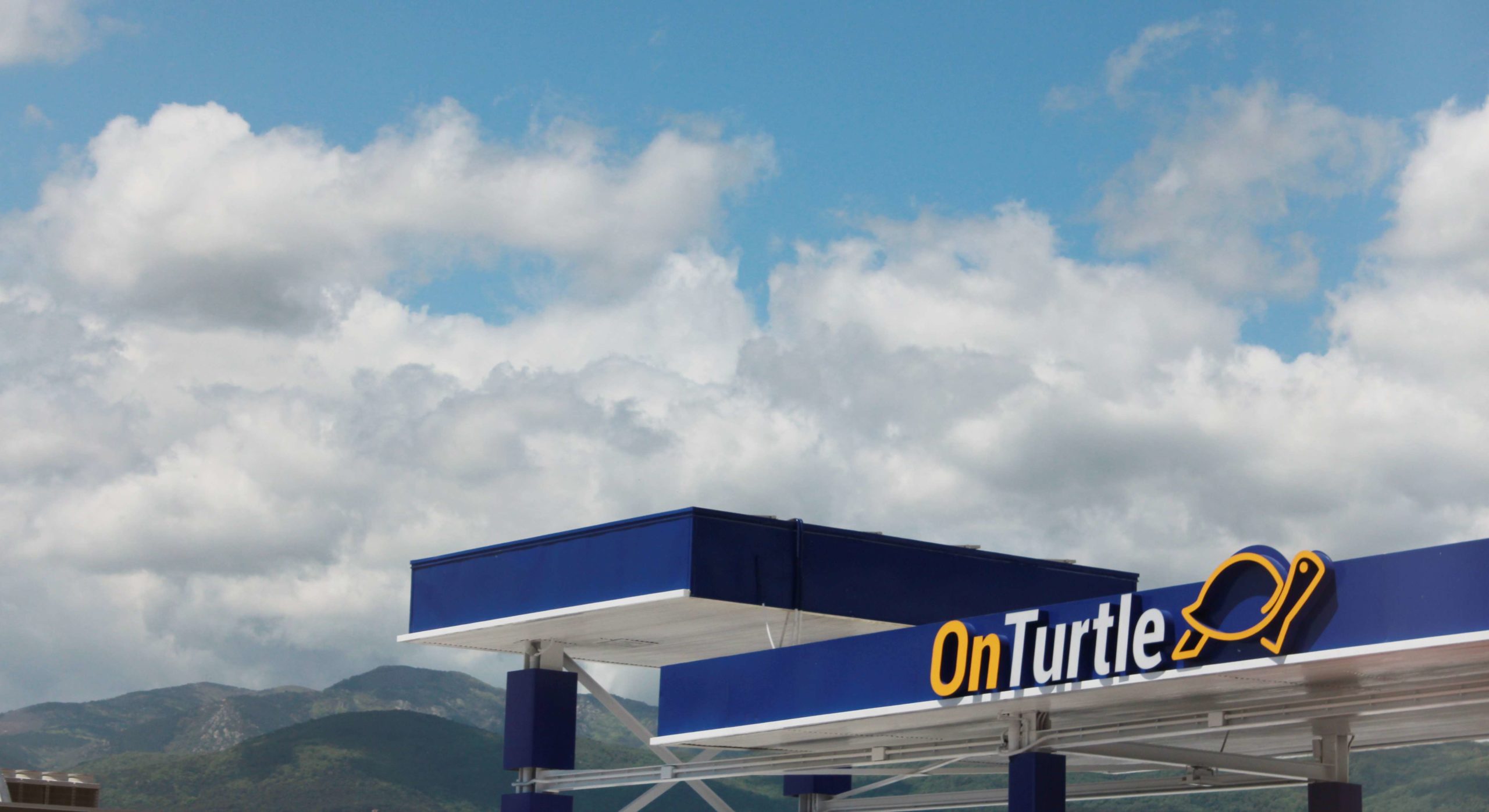Més que una empresa, a OnTurtle ja som part de la història de La Jonquera. Des dels nostres inicis, hem estat estretament vinculats a aquesta població, contribuint al seu desenvolupament i creixement. Et convidem a conèixer la nostra trajectòria i a descobrir com la nostra vocació de servei ha portat als nostres clients cada vegada més lluny en el continent.
La Jonquera com a porta a Europa
La nostra companyia va iniciar la seva activitat en el 1995 a La Jonquera, població fronterera, amb la primera àrea de servei dedicada exclusivament al transport professional. En total, 30.000 metres quadrats dedicats al conductor que avui són un punt de referència en un dels enclavaments estratègics per a la mobilitat de mercaderies a Espanya i Europa.
De fet, el nom de l’empresa i el seu logotip es deuen a la tortuga de l’Albera, originària de La Jonquera. “La tortuga és més que un símbol per a nosaltres, és part de la nostra història i de tot en el que ens hem convertit en aquests gairebé trenta anys d’història”, explica nostra CEO, Marta Fàbregas. Actualment OnTurtle disposa d’una xarxa internacional amb més de 1.700 estacions en 11 països europeus, una xarxa de gas i una per al proveïment de carburant de HVO.
Amb seu a Mercabarna i una altra delegació a Molina de Segura, a Múrcia, dos punts estratègics per al transport professional, a OnTurtle avui oferim un complet paquet de serveis a l’empresa de transport per a una assistència 360 graus.
Referent en seguretat per al transport professional
Avui, el nostre àrea de servei a La Jonquera compta amb el reconeixement de ESPORG i TAPA quant a seguretat. De fet, oferim el Millor Pàrquing per a Camions d’Europa de 50 places, un títol que mantenim des de 2023.
Es tracta d’un estacionament propi de 50 places barrat i vídeo vigilat les 24 hores del dia, amb personal format i un accés restringit mitjançant codi PIN. Com a novetat més recent, els conductors professionals poden reservar plaça prèvia a través de plataformes com SNAP, Travis i Una altra Solutions.
L’àrea de servei és una de les primeres d’Espanya i també exigeix la verificació de matrícula amb la targeta de combustible per a validar els proveïments de carburant. La nostra àrea va ser la primera d’Espanya dedicada al transport professional i no ha deixat d’actualitzar-se des de llavors. Disposa d’estació de servei, lavabos, dutxes, bugaderia, hotel, supermercat, botiga i restaurant. Aquest últim, es va renovar l’any passat per a oferir un menú mediterrani cuinat i preparat diàriament a un preu accessible.
Màxima qualitat de servei als nostres clients
La qualitat és una altra de les puntes de llança que tenim en OnTurtle. Entre altres aspectes, els nostres assortidors llueixen el segell de qualitat de SGS del nostre combustible, que reconeix la màxima excel·lència de producte i servei en les nostres àrees OnTurtle-La Jonquera, La Jonquera Acte i OnTurtle-Mercabarna.
La nostra pionera planta de microfiltratge ha tingut molt a veure per a aconseguir i mantenir aquest certificat durant 8 anys consecutius. Es tracta d’un sistema exclusiu capaç de detectar qualsevol impuresa en el combustible abans d’emplenar els tancs, la qual cosa ens permet oferir sempre la major qualitat. A més, es tracta d’assortidors de proveïment de carburant simultani, per a una major eficiència en el servei.
Entre les cinc empreses més destacades de La Jonquera
La facturació de les empreses gironines ha crescut un 20,5% durant el 2022 i el nivell d’ocupació un 7,3%, superant els registres anteriors de la pandèmia. És el resultat de l’estudi “Estructura empresarial de la demarcació de Girona 2024”, de la Diputació de la Girona amb dades del Registre Mercantil.
Segons apunten, OnTurtle se situa en el setè lloc del TOP 20 de les empreses de l’Alt Empordà i és la més destacada quant a facturació en la població de La Jonquera. L’any 2022, va superar els 129 milions d’euros.


